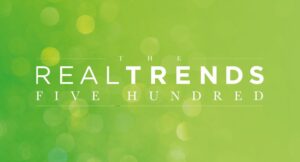Through all of the turbulence of the past three years, it is interesting to look back on it all and ask, why is change so difficult for most of us to negotiate? More changes are likely to occur as we move toward the real estate industry of the future, so it would be helpful to deal with the concept of change-resistance and to better understand the reasons behind our change-averse culture.
Rule of Thumb: We are all either slaves to, or the beneficiaries of our habits, which are changeable (with a caveat, or two)
For example, the very words that we say are essentially nothing more than patterns that we have overheard in such a way that enabled us to adopt them into our own vocabulary.
In other words:
- We heard our mother say it and then repeated it time and again…
- We read it in a book, thought that it was interesting and then repeated it…
- (And this is an interesting one) We said it by accident, liked it, and then repeated it…
So what happens if we want to change our adopted vocabulary, speech patterns or delivery style. Is it possible? Of course it is, but with a caveat or two;
Rule of Thumb: We need to have the will to change and focus toward the end result, without dwelling on the issue at hand!
When it all comes down to it, the ability to ‘change’ or ‘not change’ is the function of having the “will” and “focus” or the lack thereof.
Take for example the learning of a foreign language. Why is this so challenging of a task? Basically, it is because the words of the new language sound different to those we are familiar with and our natural tendency is to translate the new words, based upon those that we already know. When we do this, we are essentially seeking to understand the “new” through the lens of the “old.” Conversely, it is only when the learner can simply accept that the words are different and then learn them on their own terms that the learning becomes easier and more enjoyable. In essence, when we simply expect new territory to be “new” and negotiate needed change on its own terms, our ability to change catapults enormously.
I have never studied the Martial Arts, but I have considered some of the philosophies behind them. One of the most interesting aspects of Martial Arts is the technique by which experts are able to “break the boards,” with one body part or another. We, outsiders, look upon this technique with awe and wonder how anyone could possess the strength to pull it off. In essence, it is not as much a function of strength as it is a function of focus. In breaking the board, the Martial Artist is taught to:
Rule of Thumb: “Focus on a point beyond the board“
This is fascinating when you think about it. Because in focusing “beyond the board” the energy is also focused beyond the impact point. It is this, more than anything else that creates the power behind the phenomenon.
It is time for the real estate industry to focus beyond the board. Instead of submitting to the fact that markets are soft and things are tough, we must ask ourselves how we can get the job done despite these things. It is necessary to observe that your listings aren’t selling, but then immediately ask yourself what it would take to get them sold. Let’s not settle for inertia, because our customers and clients are counting on us. Looking at the example of the Martial Artist, we know that everything is possible when we have adequate will and the proper focus.







